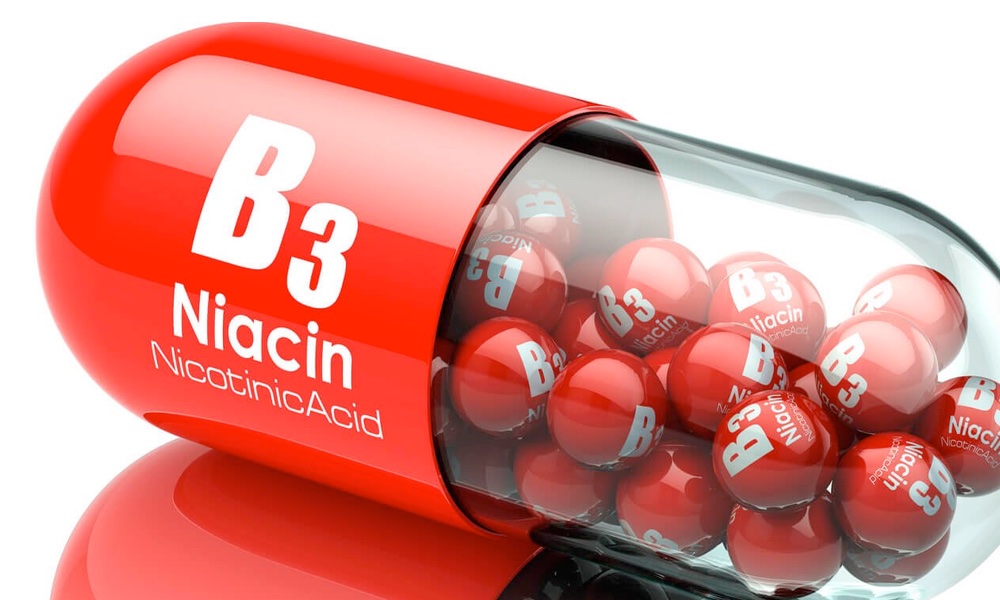There's a good chance you consume niacin, also known as vitamin B3, every day. That's because it's not only found in common foods such as nuts, beans, meat and poultry, but it's also added to several popular packaged goods. Your body makes and uses niacin to turn food into energy.
Niacin was once touted as a way to lower blood pressure and cholesterol, so some take it in supplement form. Niacin supplements can produce a burning, tingling sensation in the face and chest, and red or flushed skin.
You can have too much of a good thing, however, and an overload of niacin may be doing more harm than good. A new study by researchers at the Cleveland Clinic shows that high levels of niacin can actually contribute to cardiovascular disease.One in four of the subjects in the Cleveland Clinic study appeared to be getting too much niacin and showed high levels of 4PY.
Their findings are significant. Higher levels of 4PY were not only strongly associated with the development of heart attack, stroke and other serious cardiac events, but the Clinic's initial studies also showed that the niacin by-product triggered vascular inflammation. Over time, inflammation can lead to atherosclerosis — a type of vascular disease where the arteries that carry oxygen away from our heart are damaged.
A high intake of niacin is like multiple taps pouring water into a bucket, Stanley Hazen, lead author and the Atherosclerosis Director with the Center for Cardiovascular Diagnostics & Prevention at the Cleveland Clinic, explained. Once the bucket is filled, it spills over.
“For decades, the United States and more than 50 nations have mandated niacin fortification in staple foods such as flour, cereals and oats to prevent disease related to nutritional deficiency,” Hazen, the Jan Bleeksma Chair in Vascular Cell Biology, said in a press release. But one in four of the subjects in the Cleveland Clinic study appeared to be getting too much niacin and showed high levels of 4PY.
Considering the overload of niacin in our diets, what should we do? “The main takeaway is not that we should cut out our entire intake of niacin — that's not a realistic approach,” said Hazen. “Given these findings, a discussion over a continued mandate of flour and cereal fortification with niacin in the U.S. could be warranted.”
If you are taking OTC niacin supplements for whatever reason, Hazen suggests you discuss it with your healthcare provider. Eating a diet rich in fruits and vegetables and avoiding carbohydrates is probably a safer approach, he adds. The American Heart Association (AHA) offers these recommendations as ways to protect your cardiovascular health:Eating a diet rich in fruits and vegetables and avoiding carbohydrates is probably a safer approach than taking niacin supplements.
- Know your risk. Certain factors can increase your chance of having heart problems such as kidney disease, a family history and smoking. Let your healthcare team know if you have these factors. Many of their negative effects can be reversed with lifestyle changes.
- Eat a healthy diet that centers around fresh fruits, vegetables and whole grains. Avoid refined sugars including artificially sweetened drinks and processed meats, as well as high sodium foods.
- Get moving. It's recommended that adults get at least 150 minutes of moderate-intensity aerobics or 75 minutes of vigorous activity each week.
- Watch your weight. You can check your BMI (Body Mass Index) here. If it's high, speak with your healthcare provider about a weight-loss plan.
- Stop smoking. The best advice is to quit — and that includes vaping. Also try to avoid secondhand smoke.
- Manage your medical conditions. If you have high blood pressure, high cholesterol or diabetes and your doctor has given you medication, be sure to take it as prescribed and follow your healthcare provider's other recommendations.
The study is published in Nature Medicine.





